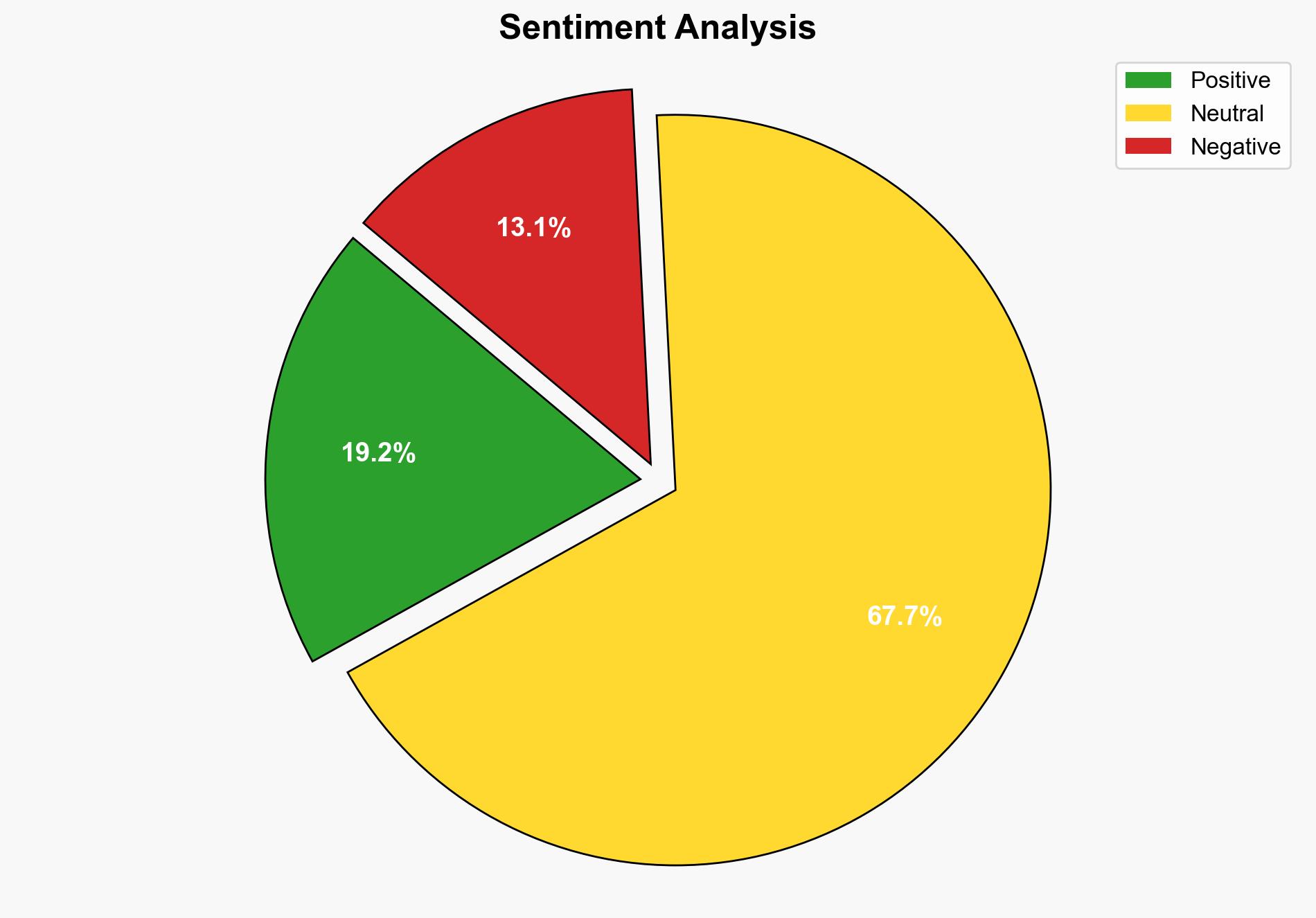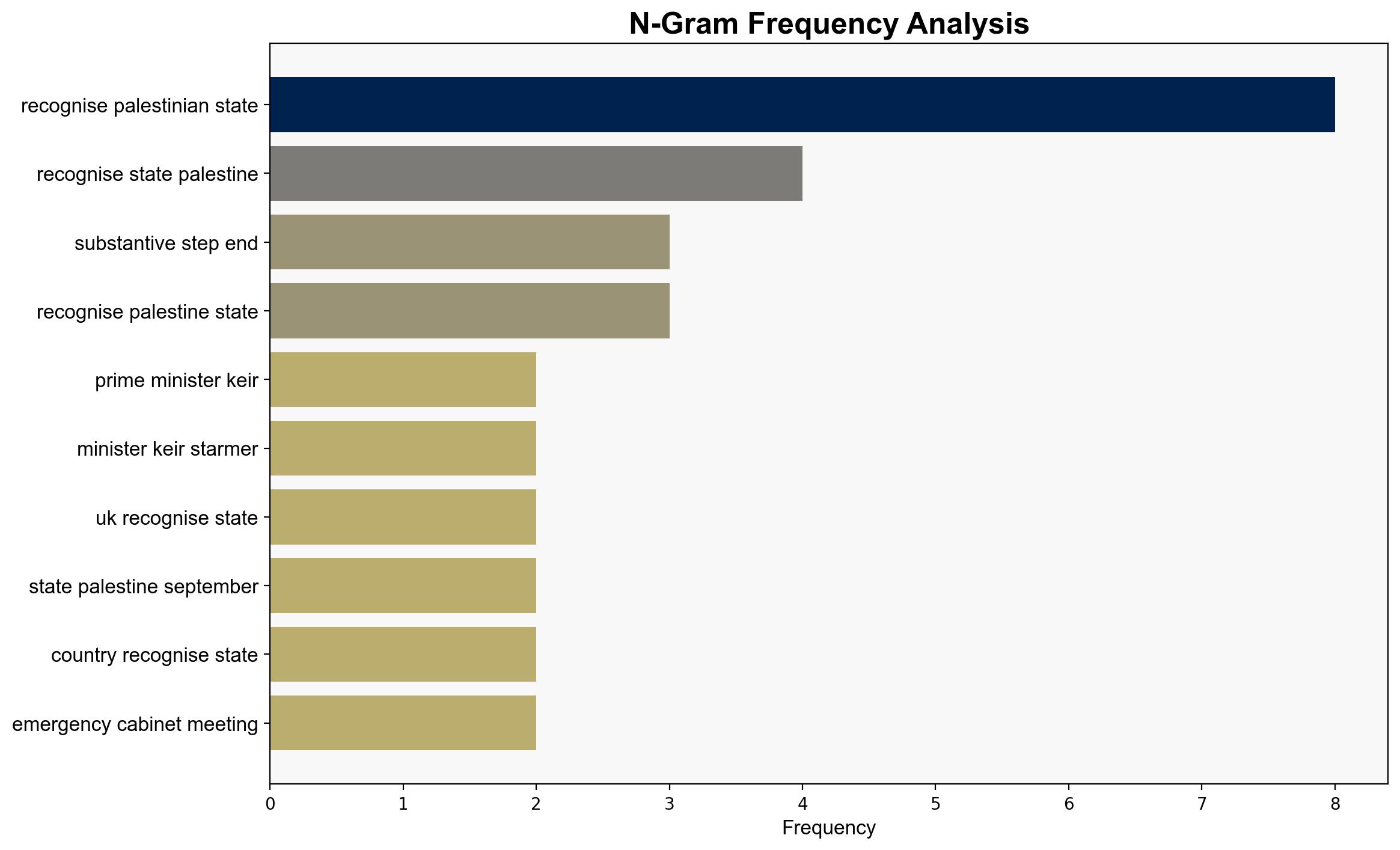How significant is UKs move to recognise Palestinian state and why now – Al Jazeera English
Published on: 2025-07-30
Intelligence Report: How significant is UK’s move to recognise Palestinian state and why now – Al Jazeera English
1. BLUF (Bottom Line Up Front)
The UK’s decision to recognize the Palestinian state is a strategic maneuver aimed at influencing the peace process between Israel and Palestine. The most supported hypothesis suggests that this move is primarily driven by domestic political pressures and international diplomatic positioning. Confidence level: Moderate. Recommended action: Monitor the UK’s diplomatic engagements and assess the impact on regional stability.
2. Competing Hypotheses
1. **Domestic Political Pressure Hypothesis**: The UK’s recognition of Palestine is primarily driven by internal political pressures, particularly from the Labour Party and public opinion, which are increasingly critical of Israel’s actions in Gaza.
2. **International Diplomatic Strategy Hypothesis**: The recognition is part of a broader international diplomatic strategy to position the UK as a key player in the Middle East peace process, aligning with France and Saudi Arabia to promote a two-state solution.
Using ACH 2.0, the Domestic Political Pressure Hypothesis is better supported by the evidence of growing political pressure within the UK and the Labour Party’s longstanding policy on Palestinian statehood.
3. Key Assumptions and Red Flags
– **Assumptions**: It is assumed that the UK’s recognition will significantly influence the peace process. Another assumption is that Israel will respond positively to international pressure.
– **Red Flags**: The lack of specific commitments from Israel and Palestine to meet the conditions set by the UK raises questions about the feasibility of this recognition leading to tangible change.
– **Blind Spots**: The potential for increased tensions with Israel and the US, who may view this move as undermining their positions, is not fully explored.
4. Implications and Strategic Risks
– **Geopolitical Risks**: The UK’s move could strain relations with Israel and the US, potentially impacting other diplomatic and trade negotiations.
– **Regional Stability**: If the recognition does not lead to substantive changes, it may embolden hardline factions within both Israel and Palestine, increasing the risk of further conflict.
– **Diplomatic Influence**: Successfully positioning the UK as a mediator could enhance its diplomatic influence in the Middle East, but failure to achieve progress could diminish its credibility.
5. Recommendations and Outlook
- Engage in multilateral discussions with key stakeholders, including the US, EU, and Middle Eastern countries, to ensure a coordinated approach to the peace process.
- Scenario-based projections:
- Best: Successful mediation leads to renewed peace talks and a reduction in violence.
- Worst: Increased tensions result in further conflict and diplomatic isolation for the UK.
- Most Likely: Limited progress with ongoing diplomatic efforts and regional tensions.
6. Key Individuals and Entities
– Keir Starmer
– Emmanuel Macron
– David Lammy
7. Thematic Tags
national security threats, regional focus, Middle East peace process, diplomatic strategy




